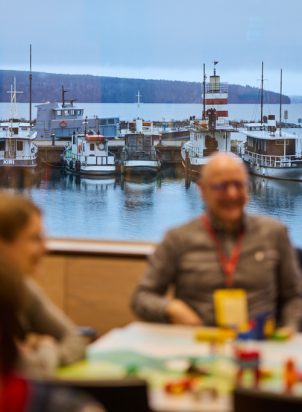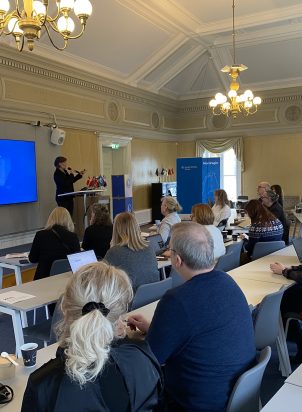French Institute Nordic Award winner and Nordregio Research Fellow Justine Ramage participated at the International Union for Conservation of Nature (IUCN) World Congress in Marseille, presenting her work on permafrost.
An event of huge proportions, the International Union for Conservation of Nature (IUCN) World Congress gathers a significant number of world-level leaders who discuss issues and solutions to combat the loss of biodiversity in the world. During this year’s congress, Nordregio Research Fellow Justine Ramage gave a presentation about permafrost and Nordregio’s work within the Nunataryuk project.
The speech focused on the impact of permafrost thaw and its effects on the Arctic population and ecosystem services. It explained the consequences of climate change on permafrost landscapes, the carbon budget, and people. Together with the audience, Nordregio Research Fellow Justine Ramage “travelled” to the permafrost region, showed pictures and offered facts and results from the latest study on perceived impacts of permafrost thaw in three communities.
“The impacts of permafrost thaw and its perception by people living on permafrost are diverse. Permafrost thaw is perceived by its residents as a major cause for challenges in subsistence activities, infrastructure, and the physical environment. Our work highlights that social perceptions are not solely determined by physical changes, but also by factors such as discourses of climate change, cultural background, and land use,” says Justine Ramage.
The project has listed as one of its main goals the attempt to determine the impacts of thawing land, coast and subsea permafrost on the global climate and humans living in the Arctic. And it also aims to develop targeted and co-designed adaptation and mitigation strategies.
Justine Ramage obtained the FINA (French Institute Nordic Award) for her work on the impact of permafrost thaw on landscapes and ecosystem services. The FINA prize aims to promote cooperation between France and the Nordic countries.



